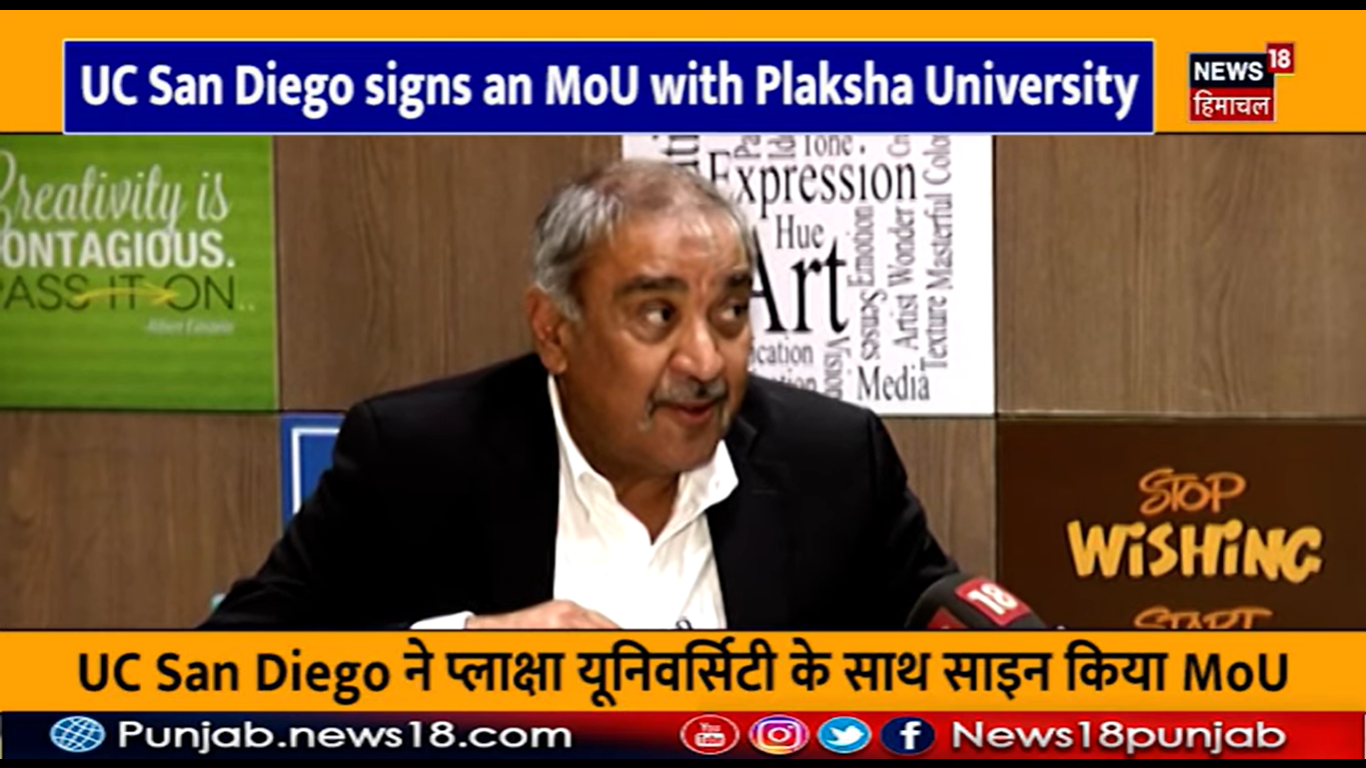By Vikram Chaudhary | Financial Express
Sector experts share how different disciplines of study will change due to Covid-19.
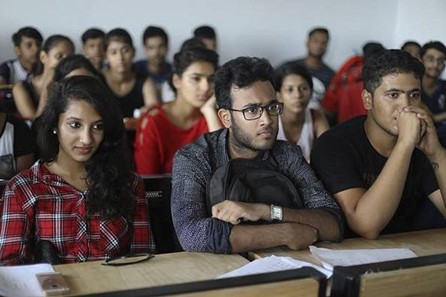
Engineering students: Self-discipline is the key to success
Soft skills will be much more in demand among engineers
V Ramgopal Rao
(The author is director, IIT Delhi)
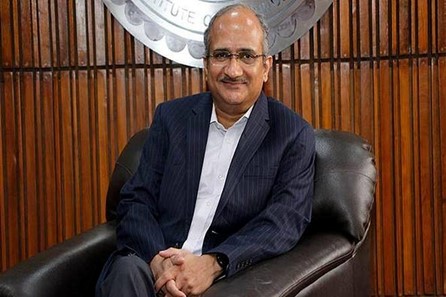
When it comes to prevention and detection of diseases, engineers have a major role to play. For detecting pandemics such as Covid-19 using AI, or spreading awareness using a web-based dashboard, or identifying such outbreaks early on so that the world can be better prepared, all these efforts require huge engineering-related inputs. And it’s not just a specific branch of engineering — from the electrical and electronics streams to computer science, all engineers have to collectively work towards it. Going forward, governments will also spend a lot more on prevention and detection technologies.
Because of the current pandemic, we also know what sort of technologies the world is struggling with, and to make these technologies available, engineers have a major role to play. I’m sure future outbreaks will be dealt with much better by any government as compared to this one. The world will be better prepared, and that preparation will require a lot of engineering participation. While biologists create vaccines and cures, to put these out in the market and make these accessible and affordable will require huge engineering inputs. With bio thrown in, things in the engineering landscape look much more exciting.
As far as jobs are concerned, much depends on the economy to recover, but there could be reorientation of engineering jobs — the nature of jobs will change. Soft skills will be more in demand even among engineers and faculty members. Traditionally, a teacher used to enter a classroom, pick up a chalk, and started writing on the blackboard, but now teaching/learning is happening online.
Especially among current students, self-discipline is going to become very, very important. Sleeping on time, getting up on time, following a schedule that is suited to your own lifestyle and being serious about your own learning (keeping in mind that nobody is supervising you) will define your career growth.
Management students: Towards a new VUCA world
New VUCA stands for “vision, understanding, clarity and adaptability”
Prof G Raghuram
(The author is director, IIM Bangalore)
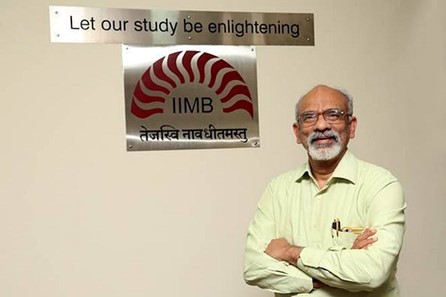
The uncertainties and repercussions due to Covid-19 will last for quite some time, possibly well into 2021. It will take a while for businesses to recalibrate their priorities and get things on track. My first advice to recently-graduated and yet-to-graduate students would be that unless there is a direct correlation of new hires with greater surpluses for an organisation, one needs to be mentally prepared for delayed joining dates, renegotiation of pay packages, or even total rescinding of offers. However, there are opportunities in this.
Right now, there is a lot of focus on Covid-19 primarily because of three reasons — it is a new disease, it spreads fast, and deaths are directly attributable to it. However, as a percentage, Covid-19 remains a small fraction of the causes of deaths per month vis-à-vis, say, heart diseases or even road accidents. It is important not to panic or even get shaken-up, but to learn to take the evolving situation in stride.
Economic activity has to come back. New ways of doing things need to be looked into. Some of these would be greater dependence of activities and businesses on online, moving away from hand-operated devices, more emphasis on health and building immunity, and rebuilding and ramping-up supply chains. These are all opportunities for innovating and new business activities.
Apart from innovation, a top skill needed would be to build rapport with teams that are geographically spread out but digitally connected. And, finally, keeping a positive outlook — to view VUCA not as volatility, uncertainty, complexity and ambiguity, but as vision, understanding, clarity and adaptability.
Law students: Equip yourself to be good self-learner
Self-learning will become even more important for lawyers
Prof Sudhir Krishnaswamy
(The author is vice-chancellor of National Law School of India University, Bangalore)
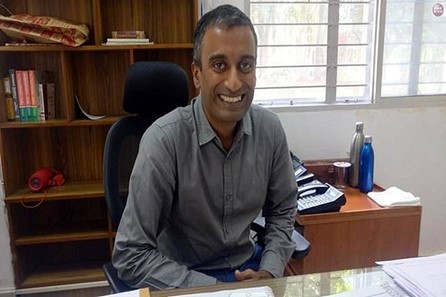
The post-Covid-19 world will be different in the way both lawyers and courts operate. The digital transformation of the legal profession has been underway for quite some time — while lawyering is happening online, even the non-litigation firms are maintaining their full service model of doing it digitally rather than in-person. Today, law students or new lawyers who are well-prepared for digital will have a head-start.
Legal is a self-learning profession; laws change all the time so professionals have to learn on-the-go. The problems and challenges you face change all the time, so a legal profession has a very big self-learning part to it. If we equip our students to be good self-learners, they are going to thrive; AI and ML are going to dominate certain sectors — like retail trade — and if we create lawyers who are good self-learners, they should be able to succeed in that new working world. The pace of learning is going to grow from hereon, and students need to prepare for engaging with universities and professional networks.
The seniors in the profession perhaps got by at a leisurely pace when they were young, but current young lawyers don’t have that option (of having a leisurely pace); they will be challenged much more quickly, and often, and they would do well to adapt to continuous learning.
The legal profession was already on the cusp of a very big change, i.e. automation in two areas of legal work.
1. Search: Lawyering is a lot about the right search for relevant information. With tech, we have seen that human search and machine search is becoming very compatible. In 2–5 years, if lawyering was just the skill of finding the relevant material, now machines are going to do that work.
2. Text generation: There is a lot of development in automated text generation. For example, if you want to write a will, the first draft of the will can be generated automatically based on a set questionnaire, and it could be 90% correct.
These two critical legal profession functions are heavily being influenced by new technologies. The Covid-19 push comes during the ongoing tech shift. If search and text generation can be automated, then there must be something left for lawyers to add value, and that is what the new legal professional should focus on.
Liberal arts students: Learn data and digital as well
The emphasis on interdisciplinary learning is going to increase manifold
Vineet Gupta
(The author is co-founder & MD, Jamboree Education; he’s also founder & trustee of Ashoka University and Plaksha University)
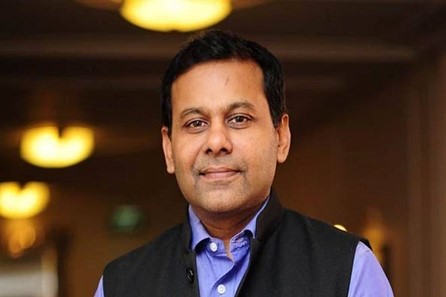
I see three trends in liberal arts education.
One, right from Greek times when liberal arts education started, its broad meaning has been education that an educated citizen of the world needs. In today’s date and age, liberal arts encompasses a broader understanding of social sciences, humanities, and now what has now gotten added to it is digital literacy and data. In the Covid-19 crisis, there is a lot of debate about science, but the bigger debate is about data — how do you flatten the curve, how many cases have happened, how many have been cured, how many happened in particular geographic regions in the world, what is the timeline of the cases, and so on. The data part is playing out more aggressively than the science part. Even scientists are relying on data to make more accurate predictions. While this has been the trend for about 20 years, in the post-Covid-19 world the emphasis on data and digital is going to increase. Any form of liberal arts education should marry some part of digital to it.
Two, as far as pedagogy is concerned, due to Covid-19 we have realised that there are some things that can be done online, but then there are also things for which physical presence (proximity) is required, and especially in the field of liberal arts, where teaching is a lot about discussion and debate. When I speak to students, they say they are missing the energy of the classroom. Going forward, institutions will have to ask themselves what can they teach digitally and for what they need a physical classroom? For some courses if you don’t need the classroom, might as well teach online — it saves trouble, it saves real estate. But proximity, closeness and social interaction enhance learning — debates and discussions are at the centre of liberal arts education. Maybe in the times to come technology will enable an almost in-person experience, but not right now.
Three, in liberal arts education the emphasis on interdisciplinary learning is going to increase manifold. Now, bio has totally married data science — if you study biology, you need to study mathematics as well. Some 20 years ago, in the 11th standard, you could choose either physics, chemistry and maths, or physics, chemistry and biology, but now to succeed you need interdisciplinary learning.
So, the three trends I see are an emphasis on data and digital, a choice between hybrid and in-person education delivery, and more interdisciplinary learning.
For students, the core skills of being able to write well, read well, being analytic and being creative will gain even more importance. If earlier it was reading, writing and maths, now it is reading, writing, maths, data and digital — if you have the core skills of being able to read well, write well, analyse well and be digitally-savvy, you shouldn’t worry.
Design students: Think glocal instead of global
Preparing students for the post-pandemic world
Sanjay Gupta
(The author is vice-chancellor, World University of Design, Sonipat)
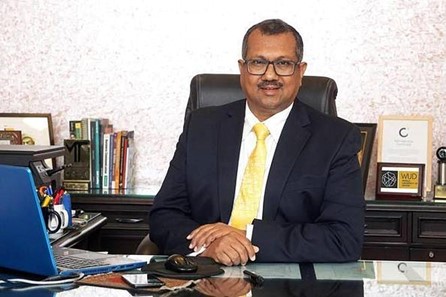
The post-pandemic world will be a very different one. Online teaching-learning was being pushed by edtech companies for over a decade, without any significant traction. Few weeks of lockdown achieved for them what billion-dollar marketing campaigns could not. Tech pundits have been forecasting about the impact of technologies like AI, blockchain, big data, machine learning and robotics on the way we live and work. Last two months have pushed all manufacturers and service providers in evaluating a quick adoption of these technologies. People had travelled all over the world for work and had gotten settled there and raised families. The last couple of months witnessed their move back to their native lands. The world had become a global village where global supply chains and trade links had obliterated the boundaries and raised a generation of global citizens. Pandemic emergency brought out in the open the fault-lines in this scenario, forcing corporations to rethink their businesses towards making them glocal instead of global.
Higher education all over the world has been disrupted as well. Students currently engaged in higher education will graduate in a more digital world impacted by the changes mentioned above, where the skillsets needed to survive and grow will be very different. At WUD, we are preparing students for the post-pandemic world through a series of initiatives — focus on online ‘learning’, not online ‘delivery’; working towards deeper understanding and conceptual strengthening through a blended learning model; introducing new technologies including AI; keeping the focus on research and study of emerging trends through webinars, discussions and competitions; and lastly ensuring their sound mental health through activities including opportunities to connect with one another via chats or video get-togethers.
The article first appeared in Financial Express on June 01, 2020.


